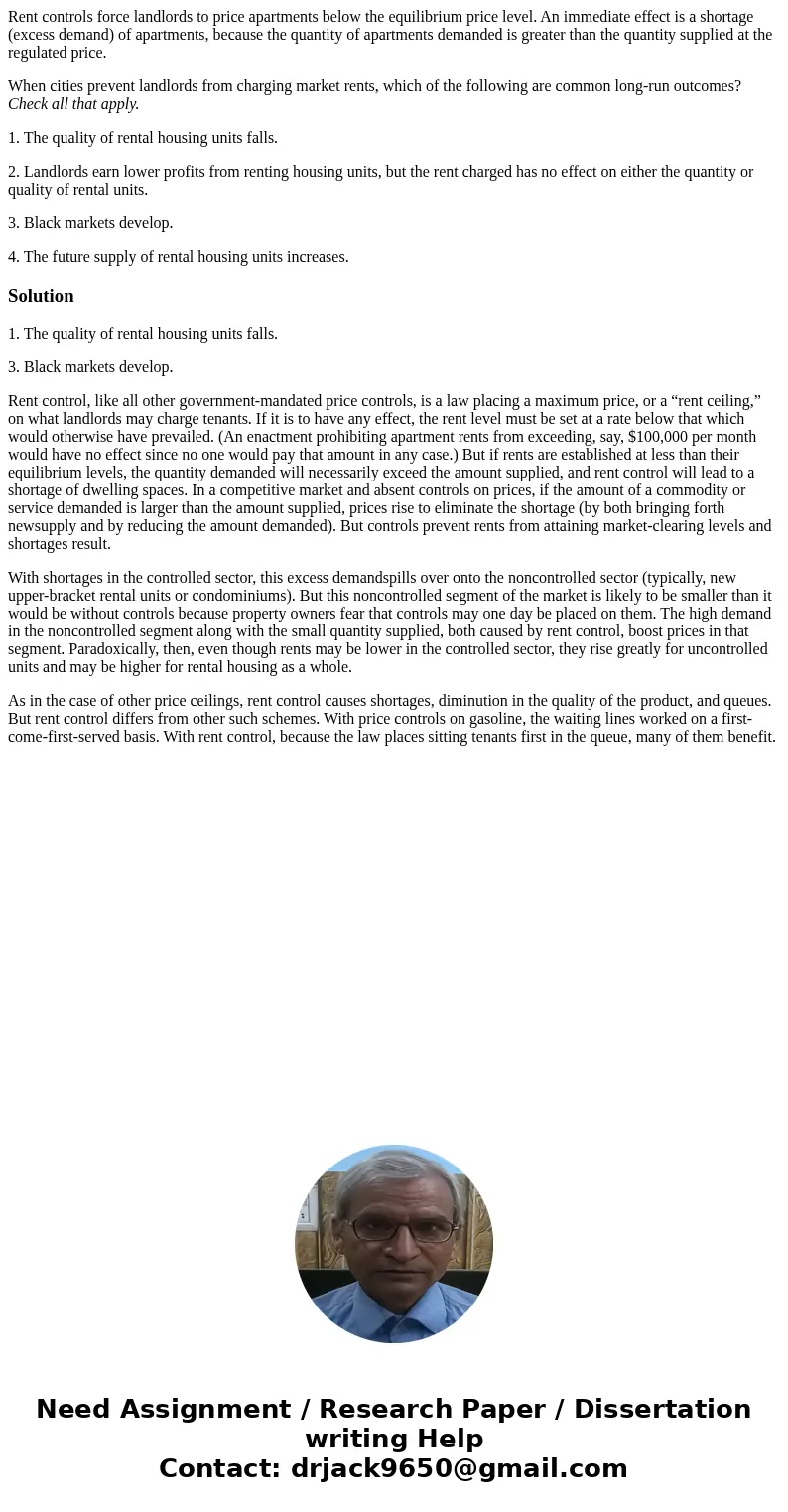Rent controls force landlords to price apartments below the
Rent controls force landlords to price apartments below the equilibrium price level. An immediate effect is a shortage (excess demand) of apartments, because the quantity of apartments demanded is greater than the quantity supplied at the regulated price.
When cities prevent landlords from charging market rents, which of the following are common long-run outcomes? Check all that apply.
1. The quality of rental housing units falls.
2. Landlords earn lower profits from renting housing units, but the rent charged has no effect on either the quantity or quality of rental units.
3. Black markets develop.
4. The future supply of rental housing units increases.
Solution
1. The quality of rental housing units falls.
3. Black markets develop.
Rent control, like all other government-mandated price controls, is a law placing a maximum price, or a “rent ceiling,” on what landlords may charge tenants. If it is to have any effect, the rent level must be set at a rate below that which would otherwise have prevailed. (An enactment prohibiting apartment rents from exceeding, say, $100,000 per month would have no effect since no one would pay that amount in any case.) But if rents are established at less than their equilibrium levels, the quantity demanded will necessarily exceed the amount supplied, and rent control will lead to a shortage of dwelling spaces. In a competitive market and absent controls on prices, if the amount of a commodity or service demanded is larger than the amount supplied, prices rise to eliminate the shortage (by both bringing forth newsupply and by reducing the amount demanded). But controls prevent rents from attaining market-clearing levels and shortages result.
With shortages in the controlled sector, this excess demandspills over onto the noncontrolled sector (typically, new upper-bracket rental units or condominiums). But this noncontrolled segment of the market is likely to be smaller than it would be without controls because property owners fear that controls may one day be placed on them. The high demand in the noncontrolled segment along with the small quantity supplied, both caused by rent control, boost prices in that segment. Paradoxically, then, even though rents may be lower in the controlled sector, they rise greatly for uncontrolled units and may be higher for rental housing as a whole.
As in the case of other price ceilings, rent control causes shortages, diminution in the quality of the product, and queues. But rent control differs from other such schemes. With price controls on gasoline, the waiting lines worked on a first-come-first-served basis. With rent control, because the law places sitting tenants first in the queue, many of them benefit.

 Homework Sourse
Homework Sourse